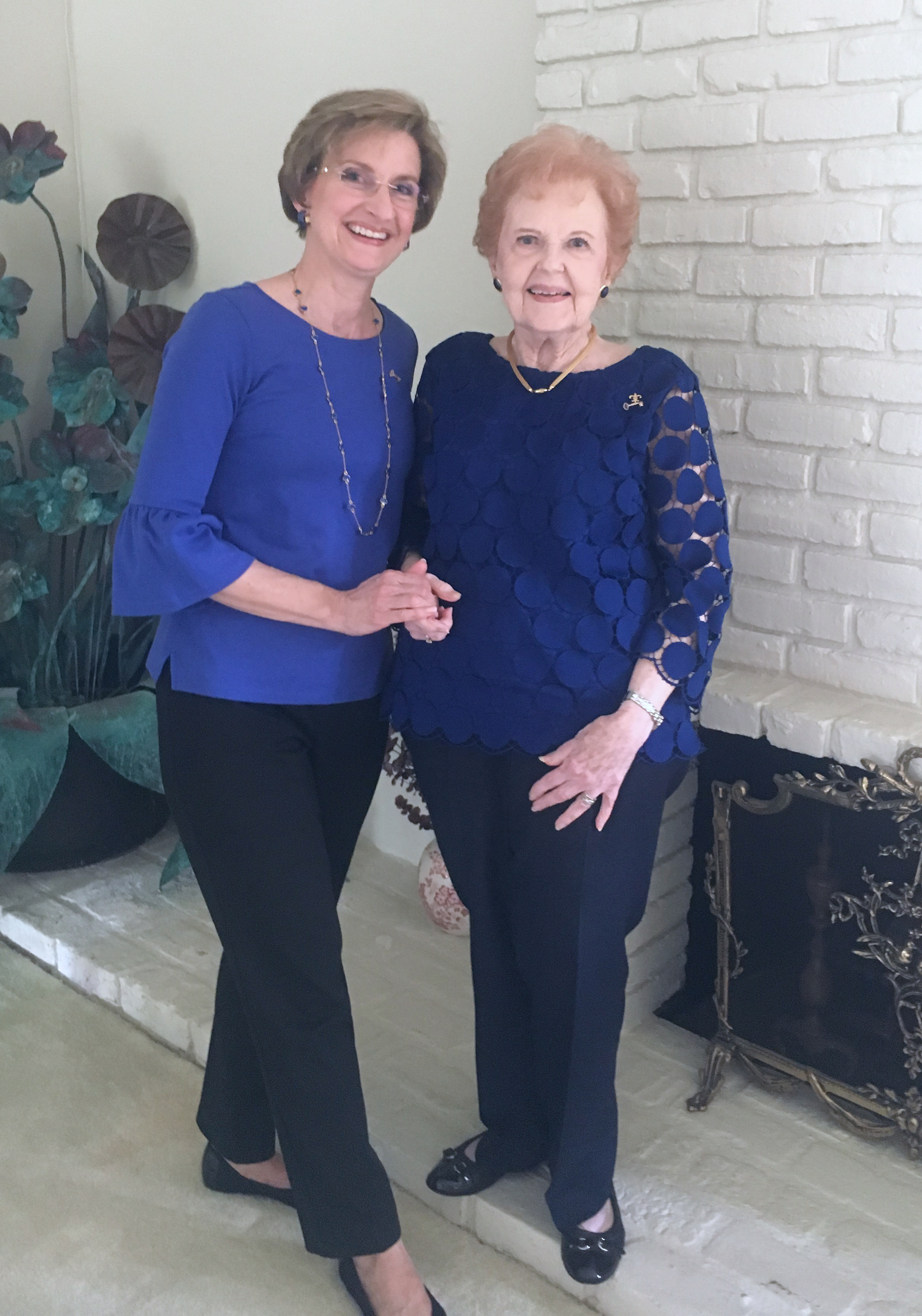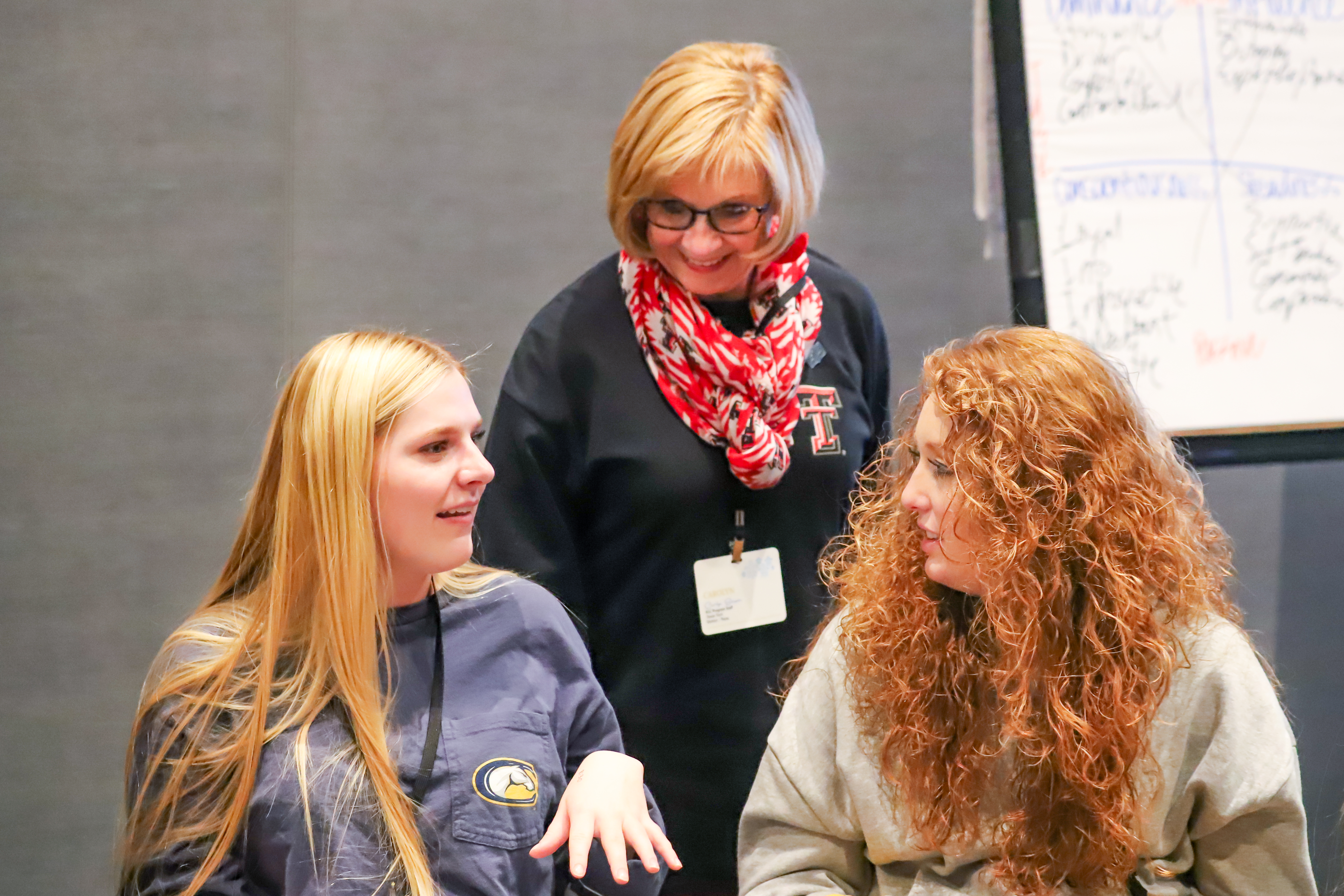
Alumna Initiation, Organization News
Initiating Change: A New Path to Sisterhood
7/31/2019
Published in The Key Summer 2019 issue.
By Kristen Desmond LeFevre, Indiana
Thanks to a bylaw revision enacted at the 72nd Biennial Convention in June 2018, Alumna Initiation aims to bring the “sweet significance of pinning on the key” to women who missed out on college Greek life.
Sally Seigfreid Harner, Missouri, Content Director for Alumna Relations, says the program saw immediate interest. “Just a few minutes after we voted, people approached me with names of outstanding women to add to the list,” she recalls.
Sally says the current list of applicants is diverse, including relatives of Kappas, current and former staff members of Kappa Kappa Gamma Headquarters, and unaffiliated women seeking a sisterhood experience to enrich their lives.
Kappa is the last of the 26 National Panhellenic Conference groups to offer alumna initiation. Learning from the best practices of those groups, Sally says Kappa has developed a strong and thorough alumna initiation. “We listened to what our NPC friends learned from their programs,” she says. “Most of those groups have been doing this successfully for decades."
STEP-BY-STEP: Kappa’s Alumna Initiation Process
Sally outlines these key steps for women who are interested in alumna initiation pursuing initiation as alumnae:
STEP 1: Qualification
Candidates must have attended a four-year college or university and must have been out of school for at least five years. Members of other NPC organizations are ineligible.
STEP 2: Application
The process starts online by completing the Express Interest form on kappa.org. An applicant must submit a résumé and provide the names of two Kappa references—one of whom will serve as a sponsor.
STEP 3: Interviews and Invitations
An applicant will meet (either in person or virtually) with Content Specialists to discuss her interest and to ask any questions about Kappa or Alumna Initiation. “We want to get to know them a little bit better,” Sally says. Based on this conversation, a recommendation will be made to Fraternity Council. Kappa Headquarters will notify the applicant of Fraternity Council’s decision.
STEP 4: Education
If an applicant for Alumna Initiation is invited to become a member, her educational period begins immediately. She will have access to online materials that she will complete before being initiated, including information on Kappa’s history, an introduction to the governing documents, and guidelines on membership expectations. The member’s sponsor will act as a guide, mentoring her through the process and preparing her for Initiation.
STEP 5: Financial Obligations
New alumna members must fulfill financial obligations, including an initiation fee of $175 and a per capita fee of $25.
STEP 6: Initiation
Upon completion of Steps 1–5, new alumna members will be approved for Initiation. Ceremonies may take place with the new member class of a collegiate chapter nearby or at a chapter where the new alumna member has a personal connection. Initiation also may take place at Convention or other mutually appropriate location or space depending upon each situation.
STEP 7: Sisterhood
Alumna initiates will enjoy all of the privileges and opportunities that Kappa membership
offers. They are encouraged to join an alumnae association, advise a chapter, volunteer time and leadership skills, participate in educational programs, give to the Kappa Foundation, and—above all else—create bonds of sisterhood that last a lifetime.


We’re tapping into a group of interested, active potential members that we might have missed otherwise.
It’s important to note that applying for Alumna Initiation does not guarantee an invitation to membership. “Just as in collegiate Recruitment,” Sally explains, “we strive to determine if a candidate is a good fit with our mission and members.” Alumna Initiation is about broadening the avenues to membership. “It allows us to recruit from a new, diverse pool of women,” Sally says. “We’re tapping into a group of interested, active potential members that we might have missed otherwise.”

